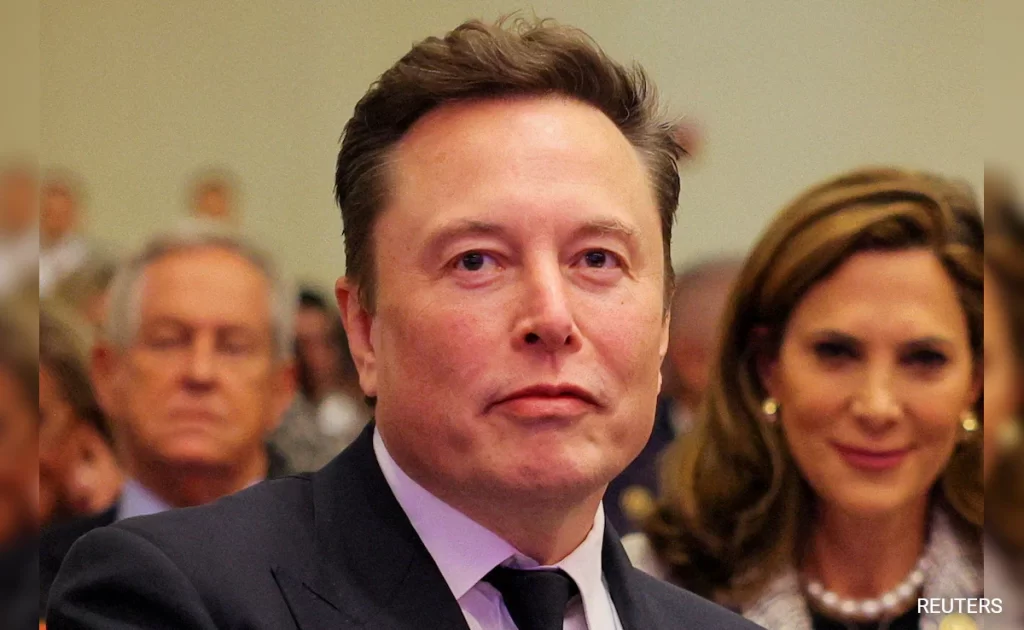Elon Musk, the visionary entrepreneur behind Tesla, SpaceX, and X (formerly known as Twitter), has sparked a wave of speculation by suggesting the launch of a revolutionary email service called Xmail. The buzz started when Musk responded to user suggestions on X about integrating an email service into the platform. His cryptic comments hinted at a significant overhaul of the traditional email experience, positioning Xmail as a potential competitor to Google’s Gmail. Here’s everything we know and can speculate about the possibility of Xmail and what it could mean for the future of communication.

What Is Xmail? Elon Musk’s Vision for Email
Musk’s hinted Xmail concept could redefine email by integrating it into the X ecosystem. As X evolves into a multi-purpose communication tool, Xmail could:
- Seamlessly Connect Users: By leveraging X’s existing user base, Xmail could offer a unified platform for messages, emails, and social interactions.
- Prioritize Security and Privacy: Musk’s consistent emphasis on free speech and user data security suggests Xmail may provide features like end-to-end encryption and enhanced privacy controls.
- Streamline User Experience: Xmail might break away from the cluttered interfaces of traditional email services, offering a clean, modern design aligned with X’s aesthetic.
- Innovate with AI Integration: With Musk’s involvement in AI ventures, Xmail could utilize AI for smart inbox organization, spam filtration, and predictive typing.
Why Xmail Could Challenge Gmail’s Dominance
Google’s Gmail is the undisputed leader in the email space, boasting over 1.8 billion active users globally. However, Xmail could capitalize on several weaknesses of Gmail and the evolving needs of modern users:
1. Enhanced Privacy
Gmail has often been criticized for using user data for targeted advertising. Xmail, under Musk’s leadership, could appeal to privacy-conscious users by promising not to exploit data for ads.
2. All-in-One Platform Convenience
Integrating email with X’s existing features—social networking, messaging, and payments—could create a one-stop solution, eliminating the need to juggle multiple apps.
3. Ad-Free Experience
If Musk positions Xmail as a premium, ad-free service, it could attract users frustrated with Gmail’s ads and promotions.
4. Focus on Productivity
Xmail could introduce features tailored for professionals, such as collaborative tools, scheduling capabilities, and integration with other productivity apps.
Potential Features of Xmail
Although details are scarce, Musk’s history of innovation suggests that Xmail could include groundbreaking features such as:
1. End-to-End Encryption
Ensuring that messages are secure and accessible only to the sender and recipient.
2. AI-Driven Insights
AI could analyze email patterns to suggest follow-ups, organize tasks, or highlight important messages.
3. Seamless X Integration
Users could share content directly from Xmail to their X profile or vice versa.
4. Cross-Platform Accessibility
A robust mobile app and desktop version would ensure users can access Xmail from any device.
5. Spam-Free Inbox
Advanced AI filters could eliminate spam and prioritize important emails.
Challenges Xmail Might Face
While Xmail’s potential is exciting, Musk and his team would need to address several challenges:
1. Building User Trust
Overcoming skepticism about X’s capabilities and ensuring users that their data is secure.
2. Competing with Established Players
Gmail, Outlook, and Apple Mail have dominated the market for years. Convincing users to switch won’t be easy.
3. Regulatory Compliance
Email services must comply with strict global regulations like GDPR, which could pose hurdles.
4. Monetization Without Ads
If Xmail is ad-free, finding a sustainable business model will be crucial. Musk could explore subscription-based pricing.
The Bigger Picture: X’s Evolution
Musk’s hints about Xmail align with his broader vision for X as an “everything app.” He has previously discussed transforming X into a platform that combines social networking, payments, e-commerce, and now email. This ambitious integration could:
- Boost User Engagement: Offering diverse functionalities within X could keep users on the platform longer.
- Expand Revenue Streams: New features like Xmail could open up avenues for premium subscriptions.
- Create a Unique Ecosystem: By consolidating various tools under one roof, X could stand out from competitors.
Will Xmail Be the Future of Email?
While Xmail remains speculative, Musk’s track record of delivering disruptive innovations gives the concept credibility. If successful, Xmail could reshape how we think about email by combining simplicity, security, and integration. However, its ultimate success will depend on user adoption and how well it addresses existing pain points in email communication.
FAQs About Elon Musk’s Xmail
1. What is Xmail?
Xmail is a rumored email service hinted at by Elon Musk. It is expected to integrate with the X platform, offering enhanced privacy and innovative features.
2. How could Xmail compete with Gmail?
Xmail could challenge Gmail by providing superior privacy, a clutter-free experience, AI-driven features, and integration with X’s ecosystem.
3. When will Xmail launch?
As of now, there is no official timeline for Xmail’s release. Musk’s comments are speculative, but they have generated significant interest.
4. Will Xmail be free?
It’s unclear. Musk may offer Xmail as a premium service to ensure an ad-free, secure experience.
5. What makes Xmail unique?
Xmail’s potential lies in its integration with X’s platform, emphasis on privacy, and use of advanced AI to enhance productivity.




